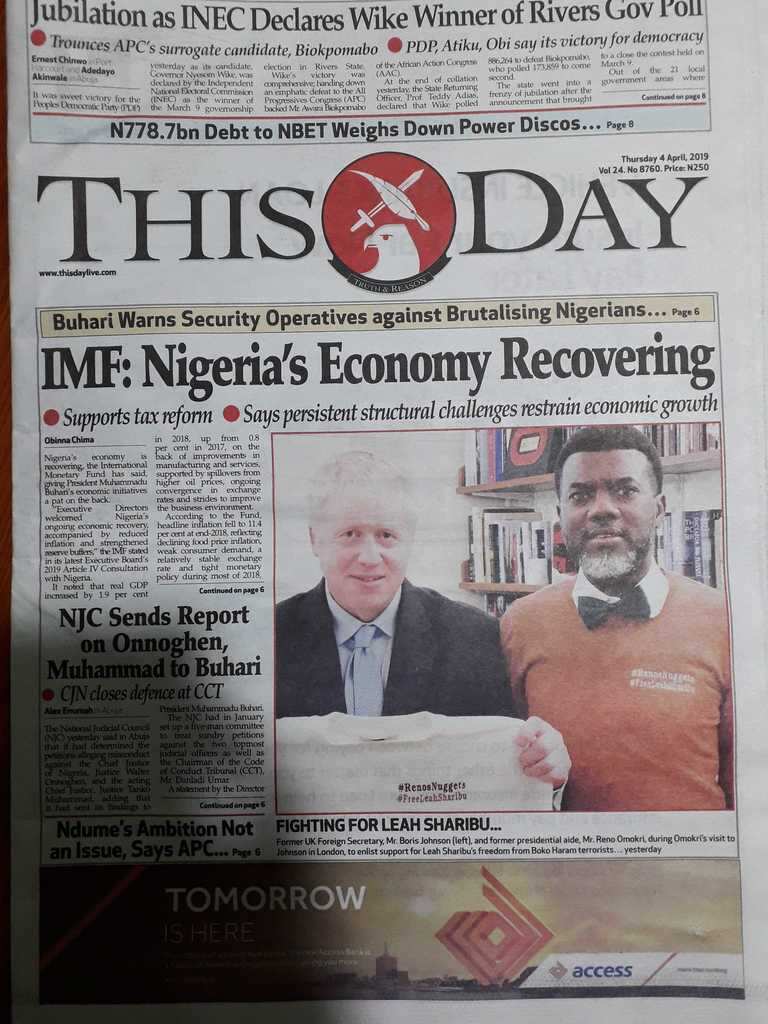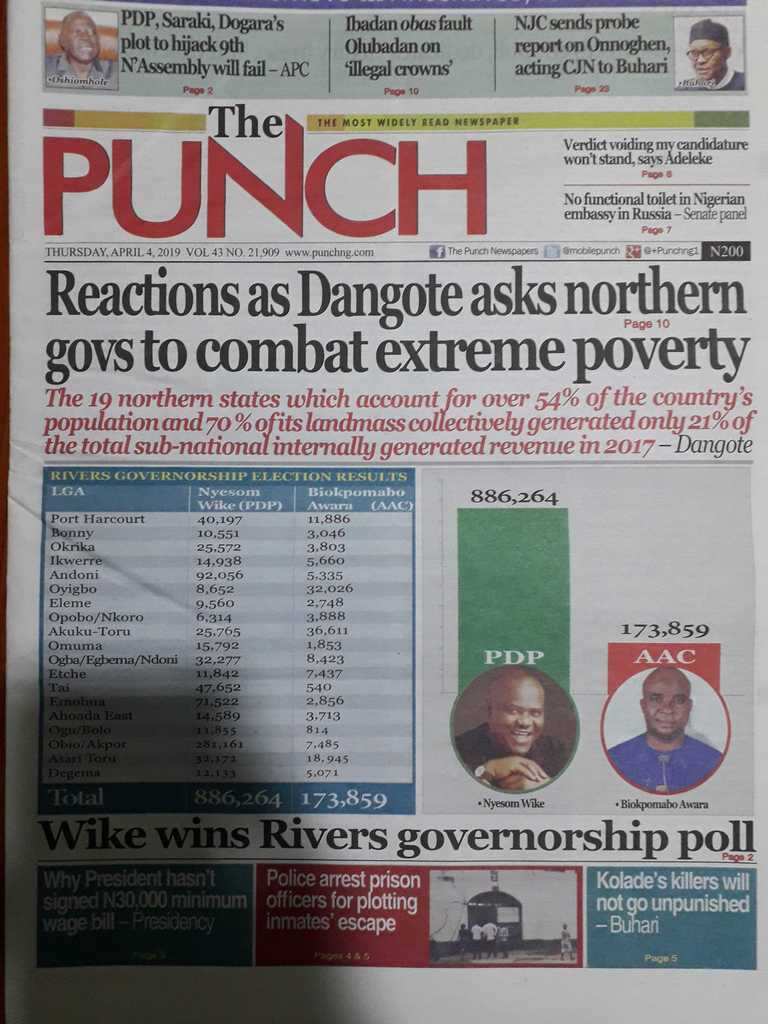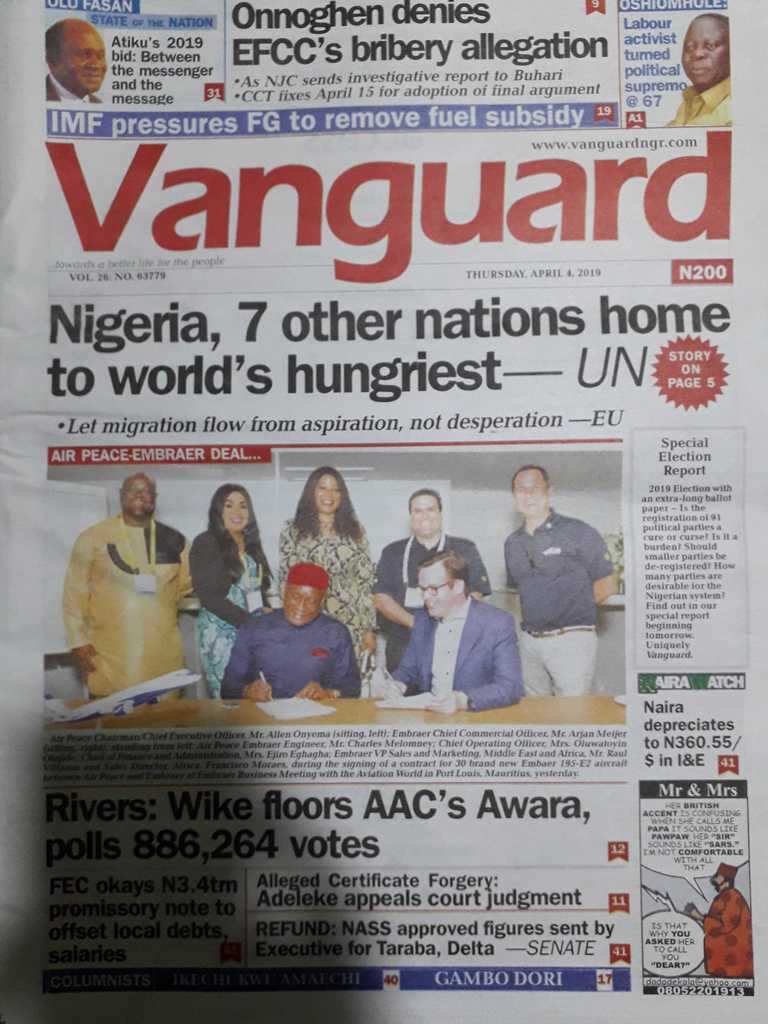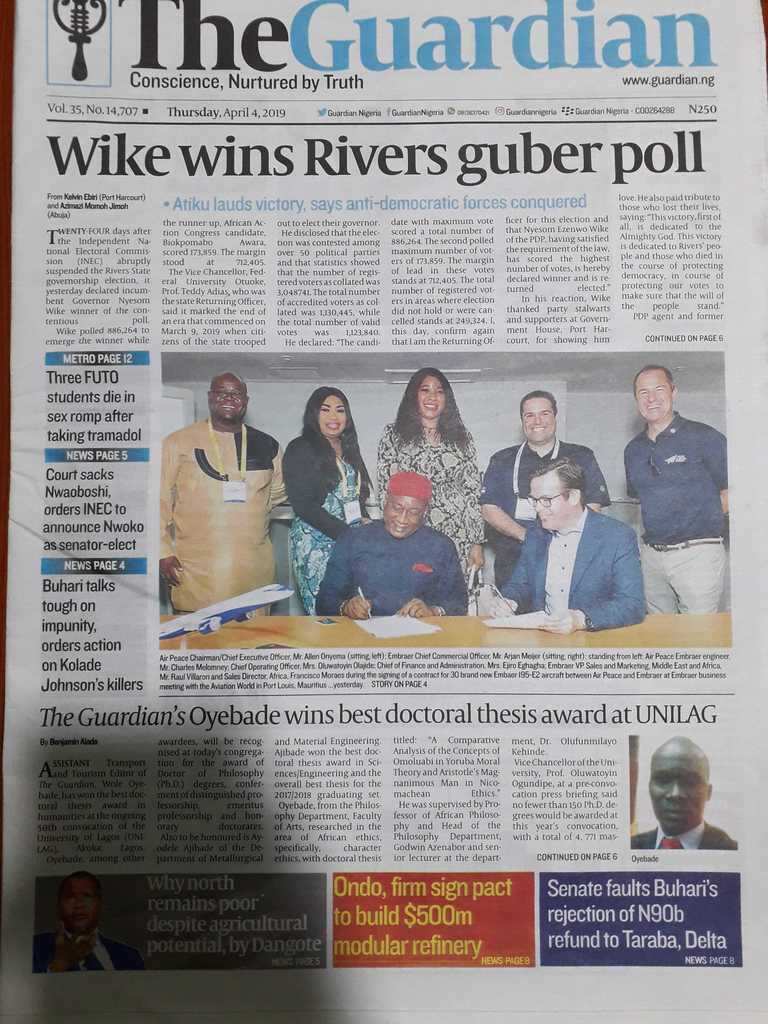The Nigerian newspaper review of Thursday, April 4, leads with the International Monetary Fund (IMF) commending President Muhammadu Buhari for his initiatives that are recovering the nation's economy from recession.
This Day reports that the International Monetary Fund (IMF) on Wednesday, April 3, said that Nigerian economy is on its way to full recovery, adding that this was due to the economic initiatives of President Muhammadu Buhari.
The IMF said: “Executive Directors welcomed Nigeria’s ongoing economic recovery, accompanied by reduced inflation and strengthened reserve buffers.” It revealed that inflation dropped to 11.4% at end-2018, reflecting declining food price inflation, weak consumer demand, a somewhat stable exchange rate and tight monetary policy during most of 2018.

Nigerian newspaper review for This Day on Thursday, April 4
Source: UGC
Punch reports that there have been reactions to Aliko Dangote's advice to state governors in northern Nigeria to do their utmost to tackle poverty.
Supporting Dangote, Alhaji Tanko Yakasai, and a former governor of old Kaduna, said: “I agree with Aliko Dangote, our governors are part and parcel of our problem especially in the area of corruption. These governors are engaged in massive stealing, corruption and waste of public resources.
“The North certainly has no business with poverty but we are certainly not making progress with the kind of leadership we have both at the federal level and in the various northern states today.”

Nigerian newspaper review for Punch on Thursday, April 4
Source: UGC
Still on the nation's economy, Vanguard reports that among seven other countries, Nigeria is home to one of the hungriest set of people in the world.
According to the Global Report on Food Crisis 2019, Nigeria's are among the hungriest people on earth. The report, released on Wednesday, April 3, in Brussels stated that food crises were majorly caused by conflict and natural disasters.
The report listed countries like Afghanistan, the Democratic Republic of Congo, Ethiopia, Nigeria, South Sudan, Sudan, Syria and Yemen as the most affected.

Nigerian newspaper review for Vanguard on Thursday, April 4
Source: UGC
Over to local politics, The Guardian reports that the Independent National Electoral commission (INEC) on Wednesday declared Governor Nyesom Wike of Rivers as the winner of the Saturday, March 9 gubernatorial election in the state.
Governor Wike polled a total of 886,264 votes, flooring his closest rival, Biokpomabo Awara of the African Action Congress (AAC) who scored 173,859 votes.

Nigerian newspaper review for The Guardian on Thursday, April 4
Source: UGC
NAIJ.com (naija.ng) -> Legit.ng: Same great journalism, upgraded for better service!
2019 elections: Do you still trust INEC to conduct fair elections? - Nigerians speak| Legit TV
Source: Legit.ng
from Nigeria News today & Breaking Naija news ▷ Read on Legit.ng 24/7 https://ift.tt/2UfJ2CW
via EDUPEDIA24/7
Comments
Post a Comment